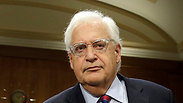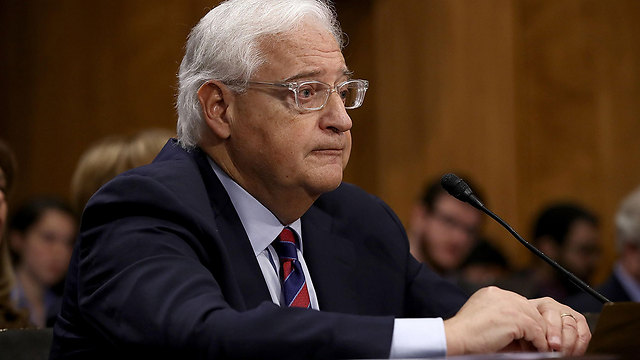
"His comments—and I want to be crystal clear about this—should not be read as a way to prejudge the outcome of any negotiations that the US would have with the Israelis and the Palestinians. It should also not indicate a shift in US policy," State Department spokeswoman Heather Nauert told reporters in Washington.
In an interview with an Israeli news site on Thursday, Friedman also said he thought "the settlements are part of Israel" proper.
The Yesha Council, which represents Jewish settlers across the West Bank, welcomed the ambassador's comments.
"Ambassador Friedman should be commended for using facts to describe the reality" in the West Bank, it said in a statement.
His comments, which are at odds with decades of US policy in the region, angered the Palestinians.
Nabil Shaath, an aide to Palestinian President Mahmoud Abbas, responded in a video clip on Twitter that the US ambassador had displayed "absolute ignorance of facts of law and of the position of the United States."
Friedman's remarks are "very bad news for the future of any American attempt to make peace in the Middle East," Shaath added.
Senior Palestinian negotiator Saeb Erekat called Friedman's comments "false and misleading," adding the claim "contradicts international law, United Nations resolutions and also the historical US position."
"Israel is internationally recognized as the occupying power over 100 percent of Palestine, including in and around occupied east Jerusalem," Erekat added.
"Such positions," he continued, "undermine ongoing efforts toward achieving a just and lasting peace between Israel and Palestine," based on 1967 borders.
He further lamented that "It is not the first time that Mr. David Friedman has exploited his position as US ambassador to advocate and validate the Israeli government's policies of occupation and annexation."
In an interview to with an Israeli newspaper earlier this month, Friedman referred to the "alleged occupation" of Palestinian territories. The State Department later clarified that his comments did not reflect a change in US policy.
Israel captured the West Bank in the 1967 Six-Day War. The Palestinians have limited autonomy in 40 percent of the area, with Israel in full control over the remaining 60 percent. Palestinians demand the West Bank as part of a future state.
The Palestinians, along with much of the international community, view Israel's West Bank settlements as illegal and an obstacle to peace. Israel disputes this, saying the fate of the settlements must be resolved through negotiations with the Palestinians.
US President Donald Trump is seeking to restart frozen peace negotiations between Israel and the Palestinians.
Friedman said the president remained committed to a peace agreement but had not set any formal timeframe.
"I would expect (a deal) within months," he said. "But we're not going to limit ourselves to any hard deadline. We're trying to get it done right, not done fast."
The Palestinians have grown increasingly concerned by Trump and his team -- including Friedman -- who have yet to publicly commit to the idea of an independent Palestinian state alongside Israel, the so-called "two-state solution."
"I think that phrase has lost its meaning," Friedman told the Israeli site. "It means different things to different people."
Asked by the interviewer what the phrase meant to him, Friedman replied, "I'm not sure. I'm not focusing on labels I'm focusing on solutions.


















